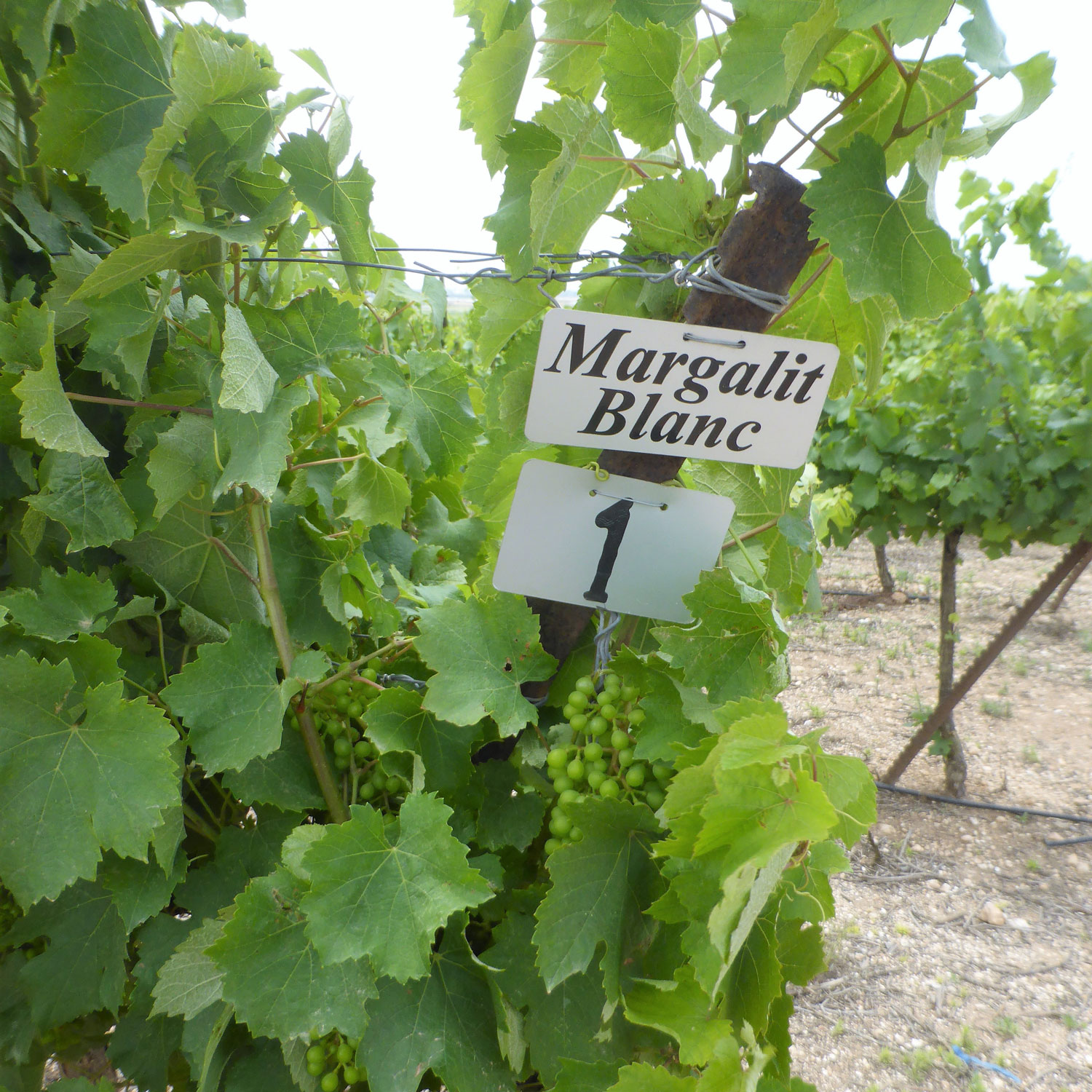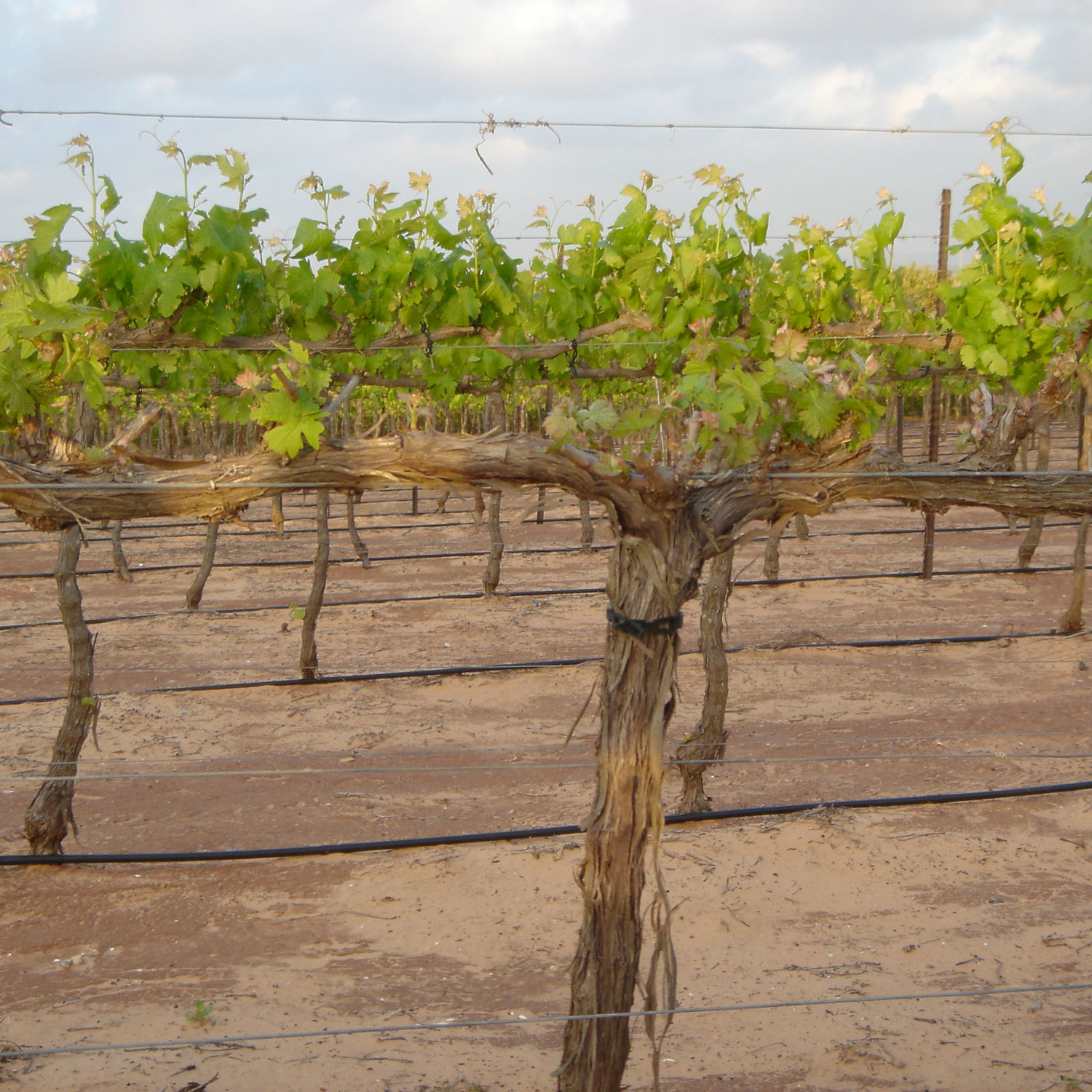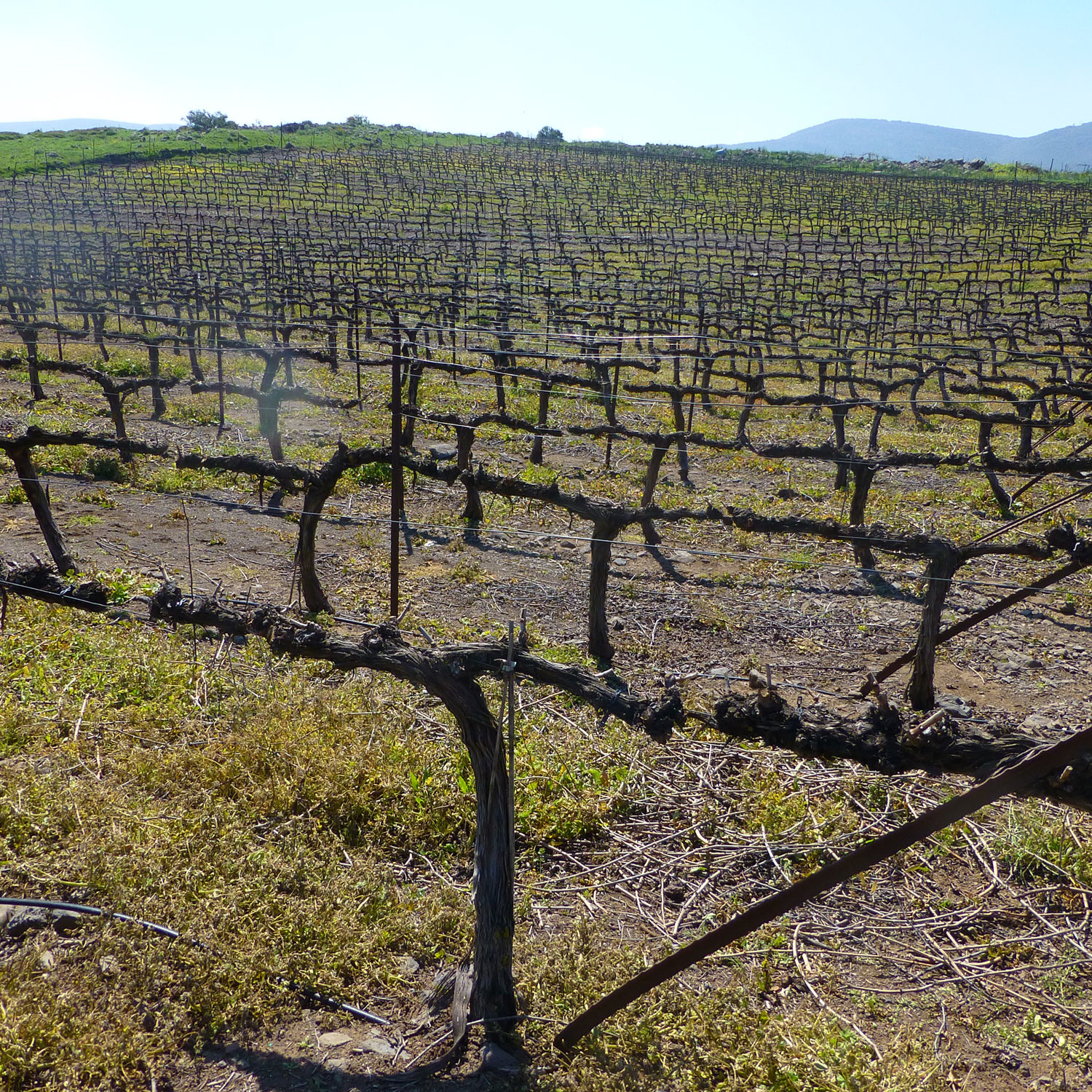In principle, we do not buy grapes from any external source and we make our wines only from grapes grown by us. By doing so, we have full control of the human factor which is responsible for the grapes’ quality. The rest depends only on nature and the annual weather conditions.
As is known, Israel is a dry country in the summer, from April to the beginning of the winter in November. This is the period where the vines are growing shoots and berries, which will be harvested at the end of the summer. At this time, the water needs are at a maximum and practically it is not possible to grow grapes without either rain or irrigation. Without this water supply, the vines will be in deep stress, which will cause the grapes not to ripen.
However, despite this situation, we choose to rely only on the winter rain and not to irrigate the vineyards at all. To achieve this, we developed our vineyards with a special program that will allow the vines live and grow, without extra water in the summer. This is how we do it:
Initially we irrigate the new vines as required, without any limits, for two years. In the third year we cut the total irrigation quantity by half. Each irrigation is carried on for a longer period, but with very long time intervals betwee each irrigation. In the next two years, the irrigation volume is cut again by half from its previous year, until we stop the irrigation completly from the sixth year onwards. The gradual limiting of the irrigation volume causes the vine roots to dig deeper in search of water. At last the vine roots are deep enough to survive the long dry summer solely with the last winter rains. The result of this procedure is that the vine growing is controlled, and balance is established between vegetative growing and the grape yield.
In addition, without irrigation there is no need for chemical nutrient supply, which is most important in typical irrigation protocol, because there are enough nutrients in the deep soil, which are less depleted by the irrigation of the top layers of the soil. The final result of these regime is a lower grape yield, with small berries, and a potentially higher quality of wine.
When the grapes are fully ripe we harvest by hand in small boxes of 10-20 kg. Generally speaking, in our vineyards, any vine produces approximately two bottles of finished wine.





